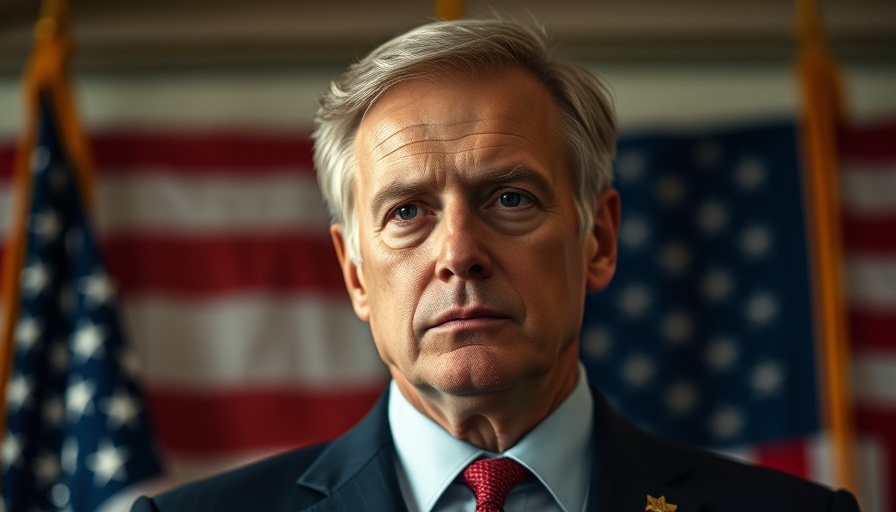
A Strategic Shift in European Defense Posture During the Ukraine Conflict
The ongoing war in Ukraine has catalyzed a profound shift in European defense strategy, placing the continent's future in question. With escalating tensions and a resurgent Russia, European nations are confronted with the urgent need to not only defend a sovereign nation but also to reestablish a credible defense posture independent of United States involvement. The current geopolitical landscape demands that Europe step up, particularly as the Trump administration signals a potential withdrawal of American influence in long-term security discussions.
Understanding the Imbalanced Dynamics in Defense Negotiations
The crux of the issue is anchored in the dynamics between military necessity and political goals. As underscored by experts from the Council on Foreign Relations, there exists a pressing need for Europe to articulate a coherent and actionable military strategy that aligns with its geopolitical aspirations. National Security Advisor Michael Waltz’s comments reveal the expectation that Europe assumes responsibility for its territorial defense, a transition long contemplated but overdue in execution. Such shifts not only underscore transatlantic relationships but also question their efficacy should European states falter in their commitments.
The Imperative of European Unity and Military Cohesion
A cohesive military strategy necessitates a robust response mechanism against Russian aggression. Drawing parallels from historical precedents is enlightening—past NATO actions have often relied on collective security principles leading to successful deterrence strategies. The establishment of frameworks akin to NATO’s Article 5, underscoring collective defense, must be mirrored in upcoming European plans. This unity will be paramount as Europe attempts to create an effective coalition capable of securing Ukraine and signalling resolve against any future threats posed by Russia or its allies.
Future Perspectives: Are We Moving Toward a European Defense Union?
Looking ahead, the situation presents a unique opportunity for Europe to consider a more integrated defense approach. The prospect of a “European army” has often been dismissed as impractical; however, the exigency of the current moment could compel member states to reevaluate this position. Such a shift might not only enhance Europe’s military capability but also augment its autonomy from U.S. military dependence. In contrast, skeptics warn this could lead to further fragmentation if consensus proves elusive within the EU.
Risks and Challenges: The Perils of Hesitation and Inaction
The risks of inaction are stark and should resonate with all stakeholders. The Atlantic Council’s insights emphasize that any delay in establishing definitive military support for Ukraine could embolden adversaries like Russia, leading to grave consequences for European security. The complexities of geopolitical gamesmanship make it imperative that Europe not only stands firm in defense of Ukraine but moves swiftly in coordinating military actions and diplomatic initiatives.
Emotional Resonance: The Human Costs of War
At the heart of these political and military maneuvers are the lives of countless individuals affected by the war. Veterans, families, and civilians alike bear the brunt of decisions made by policymakers far removed from the front lines. Reasserting Europe’s commitment to Ukraine is as much about ensuring geopolitical stability as it is about safeguarding human lives and restoring a sense of normality and peace. Continually referencing the human aspect of this conflict can instill a sense of moral duty among European leaders as they navigate their responses.
The Role of the United States: A Conditional Ally?
Meanwhile, the United States’ role is increasingly perceived as conditional. The Trump administration’s recalibration raises questions about long-term commitments to NATO and associated partnerships. Therefore, as Europe navigates its response to Russian aggression, it must simultaneously navigate the mixed signals emanating from Washington, seeking out bilateral engagements that can augment its defense capabilities. U.S. support, while crucial, cannot be relied upon without Europe solidifying its strategic framework.
Conclusion: Seizing a Historic Moment for European Sovereignty
As the war in Ukraine rages on, Europe stands at a crossroads—a moment that holds the potential for transformative change in defense strategy and political unity. By stepping up militarily and politically, European nations can reclaim their security narrative, ensuring not only the defense of Ukraine but also the integrity of the continent as a whole. Embracing this historic moment can pave the way for a durable peace and a reaffirmation of European sovereignty in the global geopolitical arena.
 Add Row
Add Row  Add
Add 




Write A Comment